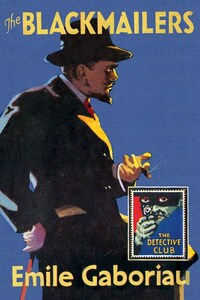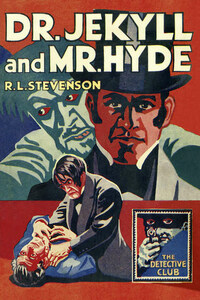COPYRIGHT
Published by COLLINS CRIME CLUB
An imprint of HarperCollinsPublishers Ltd 1 London Bridge Street London SE1 9GF www.harpercollins.co.uk
First published in French as Dossier No.113 by E. Dentu 1867 Translated as The Blackmailers by Ernest Tristan 1907 Published by The Detective Story Club Ltd for Wm Collins Sons & Co. Ltd 1929 Introduction Richard Dalby 2016
Cover design © HarperCollinsPublishers Ltd 1929, 2016
A catalogue copy of this book is available from the British Library.
This novel is entirely a work of fiction. The names, characters and incidents portrayed in it are the work of the author's imagination. Any resemblance to actual persons, living or dead, events or localities is entirely coincidental.
All rights reserved under International and Pan-American Copyright Conventions. By payment of the required fees, you have been granted the non-exclusive, non-transferable right to access and read the text of this e-book on screen. No part of this text may be reproduced, transmitted, down-loaded, decompiled, reverse engineered, or stored in or introduced into any information storage and retrieval system, in any form or by any means, whether electronic or mechanical, now known or hereinafter invented, without the express written permission of HarperCollins.
Source ISBN: 9780008137519
Ebook Edition © April 2016 ISBN: 9780008137526
Version: 2016-02-19
INTRODUCTION
ÉMILE Gaboriau’s ingenious creation Monsieur Lecoq was the first important literary detective to be featured in a series of novels during the 1860s. Published midway between Edgar Allan Poe’s three celebrated stories featuring C. Auguste Dupin (including ‘The Murders in the Rue Morgue’) in the early 1840s and Arthur Conan Doyle’s first Sherlock Holmes novel in 1887, Monsieur Lecoq was also an exact contemporary of Sergeant Cuff in The Moonstone by Wilkie Collins (1868), considered to be Britain’s first classic detective novel.
Gaboriau moved ahead of his contemporaries by focusing attention on the gathering and interpretation of evidence in the detection of crime. Historically he is second only to Poe in creating pure detective fiction, by writing the first novels in which the nature of the crime, the role of the detective, the misdirections, the reader participation and the solution are all carried through successfully in the contemporary manner, a great inspiration to all who followed in this genre.
Émile Gaboriau was born in the town of Saujon, France, on 9 November 1832, the son of a notary. He spent seven years in the cavalry before settling in Paris, where he wrote poetic mottoes for birthday cakes and songs for street singers.
He then became assistant, secretary and ghost-writer to Paul Féval, author of widely-read criminal romances for feuilletons (inserted as supplements in daily newspapers). Gaboriau gathered much of his material in police courts for Féval, and in 1858 broke away to begin work on his own serialised novels.
After writing seven popular romances, Gaboriau produced his first detective novel, L’Affaire Lerouge, which began its newspaper serialisation in September 1865, and was published in book form the following year. In this story, Gévrol, chief of the detective police in the Paris Sûreté, is in charge, but the major detection is provided by Père Tabaret, an amateur consultant who explains his methods to the young Lecoq. Tabaret has studied the literature of crime for a long time and worked by ratiocination, or precise thinking, to solve a very deceptive crime, said to have been based on a contemporary murder.
Lecoq began in L’Affaire Lerouge as a minor detective with a shady past who had previously contemplated illegal methods of gaining wealth before joining the Sûreté. His career was inspired and closely based on the life and memoirs of the real-life detective Eugène François Vidocq (1775–1857), who also joined the Sûreté after a life of crime.
After his début, Lecoq had much more important leading roles in Le Crime d’Orcival (1867), Le Dossier No.113 (1867), Les Esclaves de Paris (1868, initially in two volumes), and Monsieur Lecoq (1869, also in two volumes). These enthralling mysteries ensured that Lecoq gained countless admirers throughout Europe, including the statesmen Benjamin Disraeli and Otto von Bismarck. As Gaboriau’s reputation grew, so were his novels translated and published in the UK, but none were more successful than the bestselling Lecoq quintet, issued by Routledge in the summer of 1887 in cheap paperback and yellowback editions under the titles










